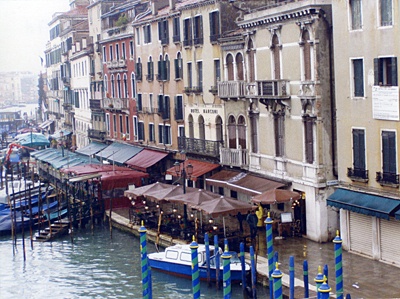All Nonfiction
- Bullying
- Books
- Academic
- Author Interviews
- Celebrity interviews
- College Articles
- College Essays
- Educator of the Year
- Heroes
- Interviews
- Memoir
- Personal Experience
- Sports
- Travel & Culture
All Opinions
- Bullying
- Current Events / Politics
- Discrimination
- Drugs / Alcohol / Smoking
- Entertainment / Celebrities
- Environment
- Love / Relationships
- Movies / Music / TV
- Pop Culture / Trends
- School / College
- Social Issues / Civics
- Spirituality / Religion
- Sports / Hobbies
All Hot Topics
- Bullying
- Community Service
- Environment
- Health
- Letters to the Editor
- Pride & Prejudice
- What Matters
- Back
Summer Guide
- Program Links
- Program Reviews
- Back
College Guide
- College Links
- College Reviews
- College Essays
- College Articles
- Back
Venice: The City of Water
For thousands of years people have marveled at the beauty and architecture of the Venice Lagoon Islands making it one of the most popular places in the world to visit. Containing five major islands a trip to Venice is never boring. Interestingly each island has its own theme. Murano Island is the glass making island, Burano Island has canals filled with wildly painted houses, Torcello Island is the nature reserve, San Michelle Island is the cemetery island and Sant'Erasmo Island is the largest but lesser known Garden of Venice. Although these aren't Venice's only islands, They are most popular to tourists.
The first human settlements on the Venice Lagoon Islands date back to the 5th and 6th centuries when the settlers from the mainland came to this semi-swamp land to escape the barbaric invasions that took place after the fall of the Roman Empire. Unfortunately they still had to fight to survive but as they grew and built homes they began to thrive. As they grew in numbers they began to run out of room. They built large rafts with wooden poles on the underside to support them and built more houses on top of those. In 1797 Venice was conquered by Nepoleone Bonaparte and in 1848 a group led by Daniele Manin came to Venice and the second Republic of Venice was born. This didn't last long as the New Kingdom of Italy claimed it in 1866.
Venice is also home to many historical figures such as The Queen of the Adriatic, explorer Marco Polo, painter Giovanni Bellini, composer Don Antonio Vivaldi and many more. This being said it may not be a surprise to you that Venice is filled with museums and historical homes. The Venice Academy Gallery Museum of Art is the museum most popular to tourists. It is the only museum in the world that has a complete collection of artwork from the 13th -to- 18th century. Beautifully this museum was once a church and school of Santa Maria della Carita'.
Don Antonio Vivaldi is easily my favorite composer who mastered the violin. Interestingly Vivaldi was not always a composer. He trained to be a priest and was nicknamed "The Red Priest" due to his fiery red hair. But sadly he was diagnosed with bronchial asthma which took a toll on his priesthood. Eventually he was asked to leave the church due to having asthma attacks in the middle of a sermon and not being able to finish.
Unfortunately this caused Vivaldi to be in a great amount of depression. Until one day he heard a gondolier singing a love song to his sweetheart. He had learned to play the violin as a child and this one sweet song inspired him to start playing again. In 1703 he started a musical orphanage for girls and contrary to popular beliefs, he taught them how to play all parts of the choir and orchestra. Even the instruments deemed only for boys. This incredible school in called Ospedale della Pieta'. For years this school was his life and was said to be the best music school in Italy. He later retired in 1740 and died in Vienna on the 28th of July 1741. But Vivaldi isn't the only wondrous thing in Venice.
The Annual Festival called the Carnival dates back to the 11th century and lasts for forty days starting in January through February. The word Carnival comes from the Latin word carnelevarium which means "take away meat" or "remove meat" and the more popular phrase "farewell to meat" which comes from the Latin words "carne" and "vale". Traditionally these forty days would mark a season of sorrowful reflection, fasting and abstinence from fruit, eggs, meat and dairy products. This festival is filled with elaborate masks, costumes, music, parties and a small tradition of throwing perfume filled eggs at someone you fancy. In the 18th century the Carnival fell into decline but picked back up in 1979 and is still going on today.
If you or a friend are planning on taking a trip to Venice I would highly recommend looking deeper into the history and culture as there is so much more to this amazing city and the people who built it.

Similar Articles
JOIN THE DISCUSSION
This article has 0 comments.
